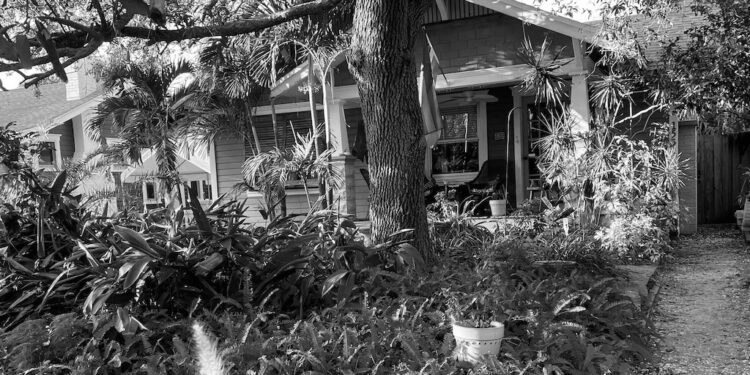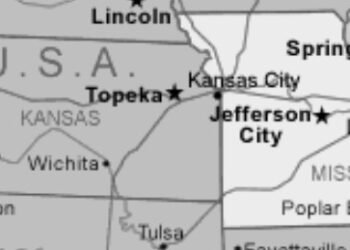Colorado’s ballot measures are just two of nearly a dozen upcoming questions dealing with property taxes in states across the country, including in Arizona, Florida, Georgia, New Mexico, North Dakota, Virginia and Wyoming. While varying in scope, the measures all aim to reduce taxes for some or all property owners.
One Colorado question is already certified for the ballot, and another appears to have many more signatures than necessary to qualify. (A third Colorado property tax ballot question, which is less controversial than the others and has qualified for the ballot, would expand the amount of tax exclusion that can be claimed by disabled veterans.)
“Property taxes are a deeply unpopular, but a fairly efficient, tax,” said Jared Walczak, vice president of state projects at the Tax Foundation, a conservative tax analysis group that advocates for lower, more broadly based taxes. “So they have always pitted economists and policy wonks against ordinary homeowners who get very frustrated with their property taxes.”
Property taxes are generally assessed at the local level, and the money raised helps pay for schools, public safety, fire response and roads. The ballot measures being considered across the country could have significant effects on the money raised by those taxes — which could mean cuts in services or pressure on state lawmakers to make up the difference.
Local governments periodically assess the value of property and then set tax rates based on those assessments. Nationwide, home market values have increased about 50% since August 2019, according to Zillow, the real estate data company.
“[Many homeowners] are paying dramatically more for the same property, and they don’t feel they are getting better government,” Walczak said. “That’s driving the discontent that is showing up in ballot measures and pressure on state lawmakers to provide relief.”
Experts say that because property taxes often are paid in a large lump a couple or so times a year — as opposed to income taxes or sales taxes, which are paid in dribbles — they tend to leave a bigger impression on taxpayers.
In Colorado, one ballot initiative would cap annual state property tax revenue growth from residential and commercial properties at 4%.
Another, which also is expected to qualify for November’s ballot, would cut residential and commercial property tax assessment rates. Since that reduction would bring in fewer dollars, that initiative, if passed, would require the state to reimburse local governments for the revenue losses — an expected $3 billion.
In May, the Colorado legislature passed a bill to lower property assessment rates, in a hard-fought $1.3 billion compromise. The new law includes short-term assessment rate cuts and long-term structural changes to the property tax code, and it prioritizes school funding over other government services. The law also caps revenue growth from property taxes at 5.5%.
But conservative groups wanted more, and they worked to get stricter property tax limits onto November’s ballot.
“The bill that passed was a good start,” said Sean Duffy, spokesperson for Advance Colorado, a conservative advocacy group and main proponent of the initiatives.
“But many Republicans and many taxpayers and people around the state were thinking it would be really important to do a more significant and permanent cut,” Duffy said.
The other organization backing the referendums is Colorado Concern, a conservative group begun by Larry Mizel, who founded one of the nation’s largest homebuilding companies and has been a key fundraiser for former President Donald Trump.
Duffy said voters still have concerns about property taxes despite the legislature’s action.
“Home values in Colorado have gone up like a hockey stick,” Duffy said, a trend mirrored in many other states. “It’s not, ‘I don’t want to pay for my schools or fire department,’ it was just a huge bucket of water in the face.”
But Colorado Democratic state Rep. Chris deGruy Kennedy, who co-sponsored the bill that became law, said the ballot initiatives would go too far.
He said the proposed 4% increase cap on property tax revenue wouldn’t allow for inflation or regional variation — or new construction, which tends to reduce individual property within a jurisdiction.
DeGruy Kennedy, who is term-limited, this summer became president of the Bell Policy Center, a left-leaning research and advocacy nonprofit that backs upward mobility for middle- and lower-income individuals.
Florida, too, has a ballot measure that could save homeowners money while cutting local tax revenues. The initiative would allow an annual inflation adjustment to the homestead exemption for people whose properties are their primary residence. It’s backed by a group of Republican legislators but opposed by the state’s League of Cities.
In Arizona, a property tax ballot measure has more to do with the hot-button issues of homelessness and vagrancy, said Ryan Byrne, managing editor of the ballot measure project at Ballotpedia, a nonprofit that tracks every candidate and referendum across the country.
If approved, the measure would allow property owners to apply for a property tax refund if the municipality does not enforce laws against illegal camping, loitering, panhandling, public urination, public consumption of alcohol and possession of illegal substances. It was referred to the ballot by the legislature on split votes, with Republicans in favor and Democrats opposed. The League of Cities also opposes this measure.
In North Dakota, former Republican state Rep. Rick Becker is leading a referendum drive to eliminate property taxes altogether.
“Do you really own your property if the government can take it away?” he said, referring to cases in which people who don’t pay their taxes might have their homes foreclosed upon.
“In North Dakota, not unlike many other states, people hate property taxes,” he said. He argued the legislature has lots of other pots of money from which to replace the revenue.
A nonpartisan legislative research agency estimated that ditching the property tax in North Dakota would cost the state $1.3 billion per year.
Georgia’s ballot measure would allow localities to create a homestead exemption for homeowners whose property is their primary residence.
New Mexico’s and Virginia’s measures would extend more property tax breaks to veterans.
Wyoming’s ballot initiative would set up a new class of property for taxation, putting owner-occupied dwellings in a separate category from rental property.
[This article was originally published on Stateline. Read the original article.]









What Missouri can learn from Kansas’s budget crisis